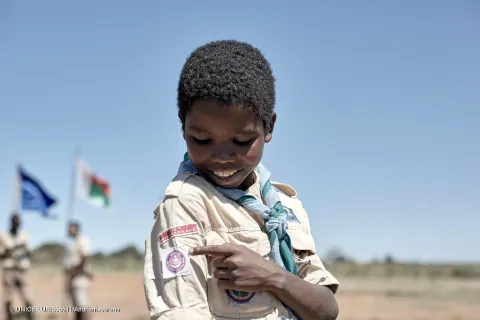Combating Hunger and Malnutrition in Southern Madagascar
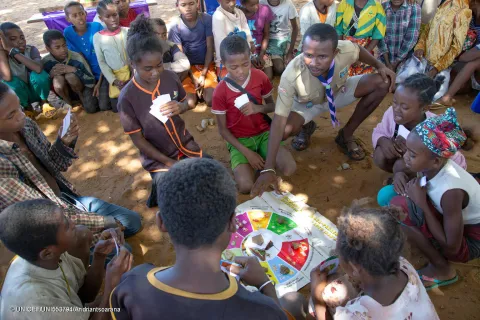
Scouts in Madagascar launched an ambitious project in the southern regions of Androy and Anosy, aimed at improving nutrition among school-aged children and adolescents. This initiative aligns with global efforts to fulfill Sustainable Development Goal 2: Zero Hunger, tailored to meet the unique challenges of these drought-stricken areas. Driven by the core values of Scouting, which emphasize community service and personal development, the project was initiated in response to the alarming rates of malnutrition reported in these regions.
According to UNICEF, in 2020, approximately 47% of children under five in Southern Madagascar suffered from stunted growth due to chronic malnutrition. These areas were chosen for their significant need and the opportunity to make a meaningful impact, engaging young people in the fight against hunger through educational and participatory methods.
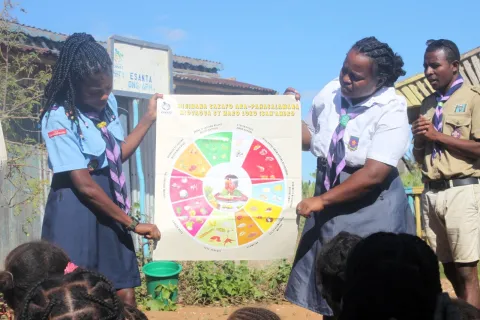
The Scouts implemented a series of nutrition education campaigns and workshops, leveraging digital communication and social media to extend their reach and enhance engagement. Local Scouts were trained to lead these activities, employing interactive and peer-led methods that resonated well with the community and ensured the message was effectively conveyed.
A standout feature of the project is the "Tsikitragno" activity, a culinary competition that engages youth in utilizing local food crops like cassava, corn, and legumes, and in preparing traditional dishes that reflect the unique flavors and culinary heritage of Southern Madagascar.
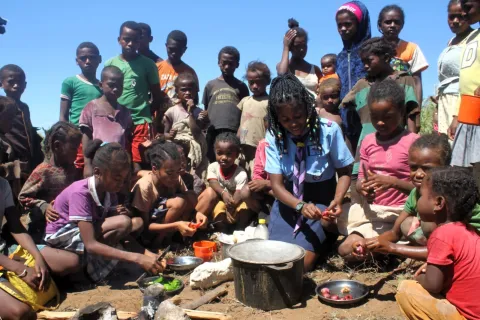
This initiative, part of the broader program that includes the YUNGA Nutrition badge, emphasizes the use of water conservation techniques in cooking, aimed at addressing the climatic challenges of the region. The YUNGA badge serves as a tool for encouragement and recognition, promoting enthusiastic participation and meaningful learning among the youth. This holistic approach not only educates but also equips the participants with valuable skills and knowledge, further contributing to the sustainability of the project's impact.
The project had a profound effect, reaching over 422,500 children, adolescents, and vulnerable women in the targeted districts. It fostered an increased awareness about healthy eating habits and the nutritional value of local foods, setting a foundation for sustainable lifestyle changes. The success of the project was not just in its immediate nutritional improvements but in the lasting awareness it created within the communities, empowering young people to continue promoting health and nutrition independently.
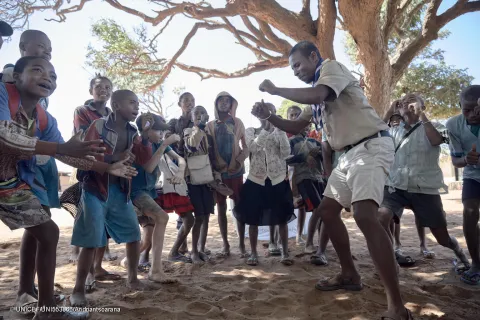
Reflecting on the project, several key lessons emerged that will guide future initiatives. The importance of continuous community engagement was highlighted, along with the need for regular monitoring and evaluation to sustain and expand the impact. The project underscored the effectiveness of integrating traditional Scouting methods with modern digital tools to engage and educate at scale. Moving forward, the organization plans to replicate this model in other regions, continuously refining their approach based on the outcomes and feedback from current and past efforts.
This initiative by the Scouts and Girl Guides, partnering with UNICEF and multiple national stakeholders, exemplifies how targeted community projects can address global challenges like hunger and malnutrition. Through education, engagement, and empowerment, the Scouts are not only feeding bodies but also nurturing a generation of informed, health-conscious citizens poised to make a difference in their communities and beyond.
